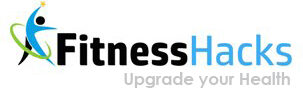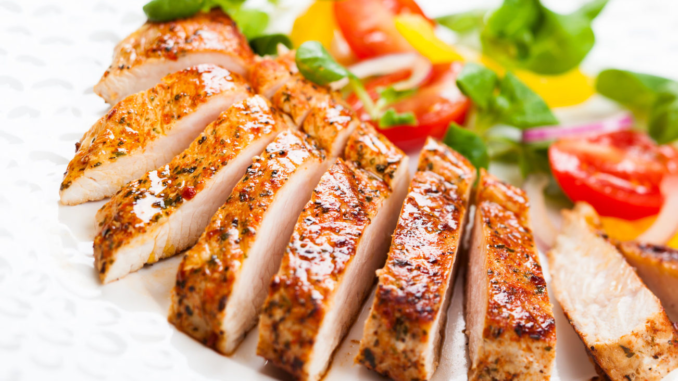
In order to gain muscle, workout and nutrition intake are both equally important. Working out without adequate nutritional support leads to muscle wastage while optimum muscle-building nutrition without exercise will simply lead to fat gain, not added muscles.
To build muscle, you must challenge your muscles through physical activity while ensuring you eat right. Along with moderate amounts of carbohydrates and fats, a high-protein diet is necessary for building strong muscles.
Though there are plenty of debates regarding the intake of fats and carbohydrates, everyone agrees that protein intake is a must. People everywhere embrace the power of this mighty macronutrient. No one denies the positive impact that protein has on strength, performance, and body composition.
But not everyone understands the role of protein in muscle building, which are the richest protein sources, how much protein to eat, and when to eat it. There are so many myths surrounding protein consumption, that you need to get your facts straight if you are serious about bodybuilding and want to maximize your muscle gains.
What are Proteins?
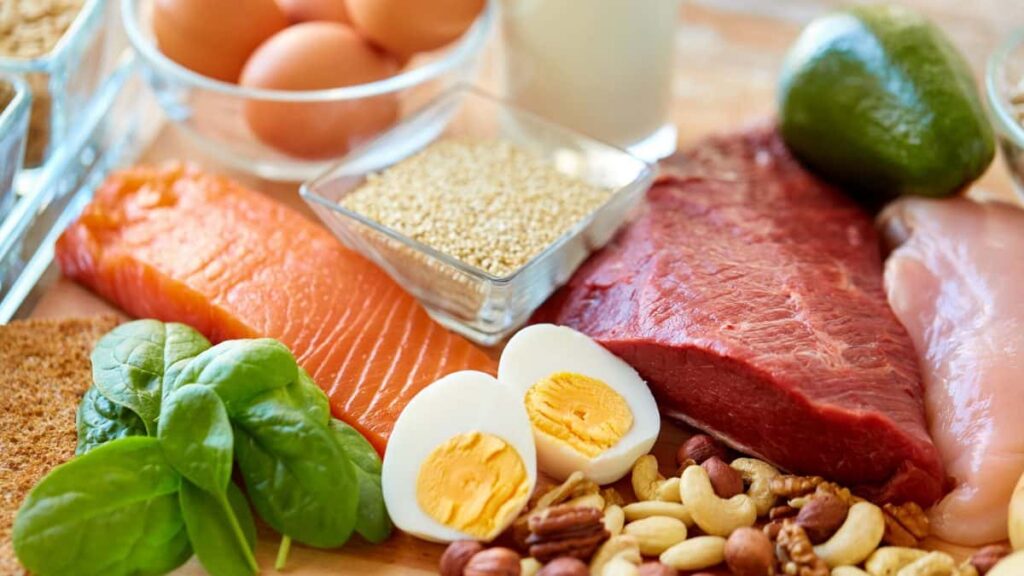
The food we eat contains nutrients that are necessary for our functioning. These nutrients are divided into macro and micronutrients based on their size and the quantities needed by the body on a daily basis. Proteins, along with fats and carbohydrates, are considered “macronutrients” as the body needs relatively large amounts of them.
Protein is required for a variety of functions in our body. Many parts of our body, such as our hair, nails, muscles, and hormones are made up of proteins. Proteins are also needed for building bones, cartilage, skin, and blood.
Though carbohydrates and fats are the primary fuel sources of the body, protein can also be converted into fuel if other sources are unavailable. One gram of protein has 4 calories per gram, the same as that of carbohydrates.
Role of Protein in the Body
Protein has a role to play in almost everything that’s happening inside your body.
- It is needed for oxygen transport in the blood, for building and repairing body tissues (including muscle tissue), and production of enzymes, as well as, hormones.
- Proteins form the fundamental building blocks of various internal organs, blood, bones, cartilage, hair, skin, and even the nails on your fingers.
- The antibodies, used by our immune system to fight diseases and allergens are made of proteins.
- Transport proteins carry small molecules and ions such as sodium, potassium, and calcium across biological membranes.
- In contrast, messenger proteins are used for communication between cells in various parts of the body.
Dietary Protein for Muscle Building and Fat Loss
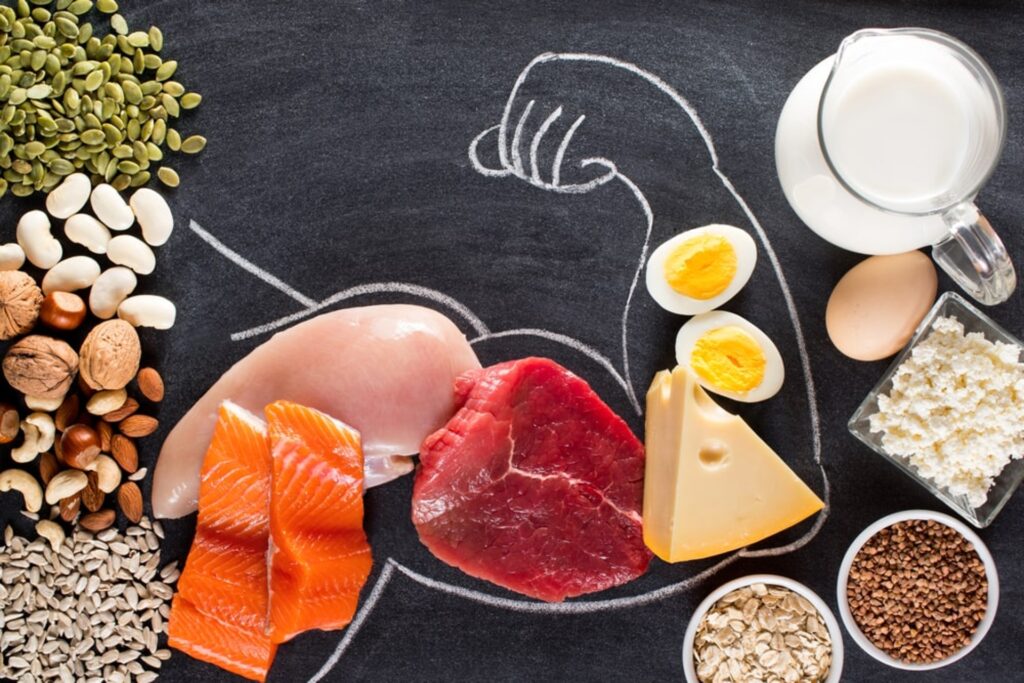
High protein diets are associated with bodybuilder and muscle gain for a very good reason. Combined with resistance exercises and adequate calories, high-protein diets have been proven to add and retain muscle mass.
A study conducted at McMaster University found that high-protein diets are the key to adding muscle, even if you are cutting calories to lose weight.
The researchers divided 40, slightly overweight, young men into two groups. Both groups had to work out and follow low-calorie diets. But one group was given much more protein than the other. The high protein group experienced approximately 2.5 pounds of added muscle gains despite consuming insufficient energy.
The lower protein group, on the other hand, did not add muscle, but they did not lose any muscle either. Cutting calories and not working out is known to result in fat and muscle loss.
Stuart Phillips, the senior investigator on the study, says that “Exercise, particularly lifting weights, provides a signal for the muscle to be retained even when you’re in a big calorie deficit.”
The researchers also noted that the high-protein group lost about 10.5 pounds while the low-protein group lost only eight pounds, despite consuming the same amount of total calories and performing the same workouts.
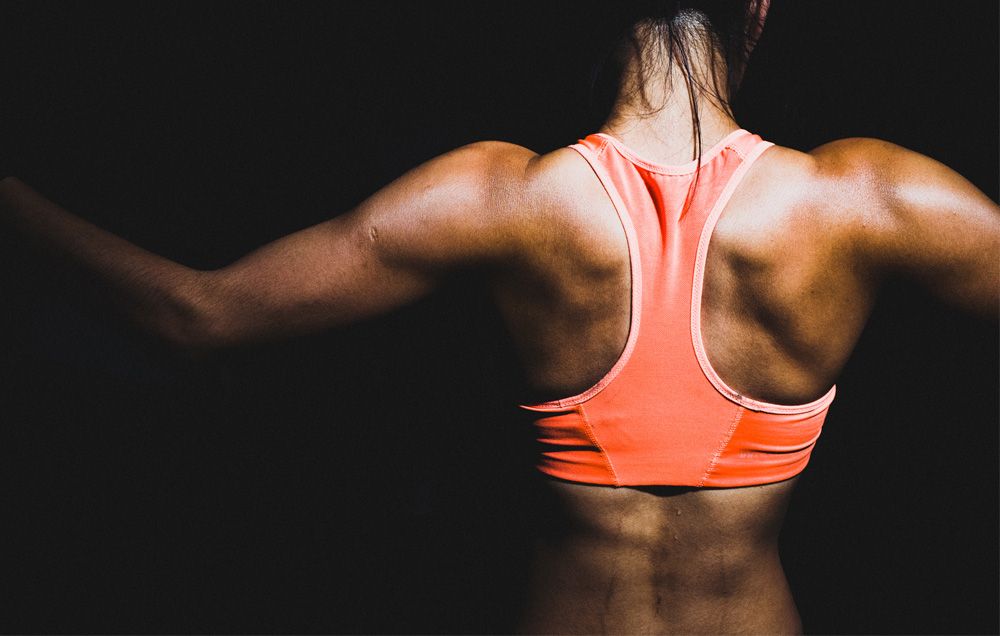
Protein-rich diets aid in the reduction of unwanted body fat in many ways. The more muscle is built, the more calorie-burning post workouts.
Consuming protein keeps you feeling full and satiated. It diminishes appetite and reduces food cravings, so you are less likely to reach for unhealthy snacks. Most protein foods tend to be low in fats and carbs.
For instance, a serving of cottage cheese has just 1 to 2 grams of fat while a chicken breast serving has 2 to 3 fat grams. Egg whites are completely fat-free. Fish is also a fat-free source and the ones that do contain fat have healthy omega-3 fatty acids.
Another weight loss benefit of protein comes from the fact that protein is a thermogenic agent. This means, to digest protein your body has to burn much more calories than it takes to digest the same amount of fats or carbs.
We have divided the remaining of this guide into the following subtopics:
Read on to learn more:
The 9 Essential Amino Acids and Their Role in BodyBuilding
The High Protein Foods That Help You Build Muscles
